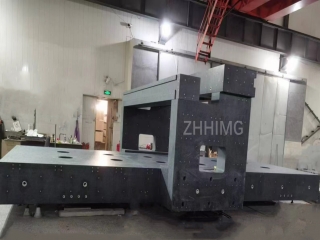Oxidation resistance of precision ceramic components and its application environment
Precision ceramic components are indispensable high-performance materials in modern industry, and their unique physical and chemical properties have brought revolutionary changes to many fields. Among them, oxidation resistance is one of the most prominent characteristics of precision ceramic components, which is particularly important in extreme environments.
Oxidation resistance of precision ceramic components
Precision ceramic materials, such as alumina, silicon nitride, silicon carbide, etc., are known for their excellent antioxidant properties. These materials can maintain stable chemical properties under high temperature and high oxidation environment, and are not easy to react with oxygen, thus avoiding oxidation, corrosion and performance degradation of the material. This excellent oxidation resistance is mainly due to the stable crystal structure and the strength of chemical bonds inside the ceramic material, which makes it able to maintain long-term stability and reliability in harsh environments.
Critical application environment
1. Aerospace
In the aerospace field, the oxidation resistance of precision ceramic components is particularly important. Aircraft engines and spacecraft need to withstand extremely high temperatures and oxidizing gases during high-speed flight. Components such as combustion chambers, nozzles and turbines made of precision ceramic materials can maintain stable performance at high temperatures, effectively prevent oxidation and corrosion, and ensure the normal operation of the engine and spacecraft.
2. Energy sector
In the field of energy, the oxidation resistance of precision ceramic components also plays a key role. For example, in high-temperature equipment such as gas turbines and coal-fired boilers, components such as thermal insulation layers and filters made of ceramic materials can resist the erosion of high-temperature smoke, protect the internal structure of the equipment and improve energy efficiency. In addition, in the field of nuclear energy, precision ceramic materials are also widely used in the thermal insulation and protective layer of nuclear reactors to ensure the safe use of nuclear energy.
3. Chemical industry
In the chemical industry, many chemical reactions and processes need to be carried out in high temperature, high pressure and strong corrosive environments. Precision ceramic components, with their excellent oxidation resistance and corrosion resistance, are indispensable materials in these environments. For example, in chemical equipment with severe acid and alkali corrosion, components such as pipes, valves and pumps made of ceramic materials can effectively prevent corrosion and leakage, ensuring the safety and stability of chemical production.
conclusion
In summary, the oxidation resistance of precision ceramic components is one of its many excellent properties, which plays an important role in aerospace, energy and chemical industries. With the continuous progress of science and technology and the continuous expansion of applications, the antioxidant properties of precision ceramic components will continue to be concerned and improved, bringing innovation and progress to more fields. In the future, with the continuous development of material science and preparation technology, we have reason to believe that precision ceramic components will show their unique charm and value in more fields.
Post time: Aug-07-2024

